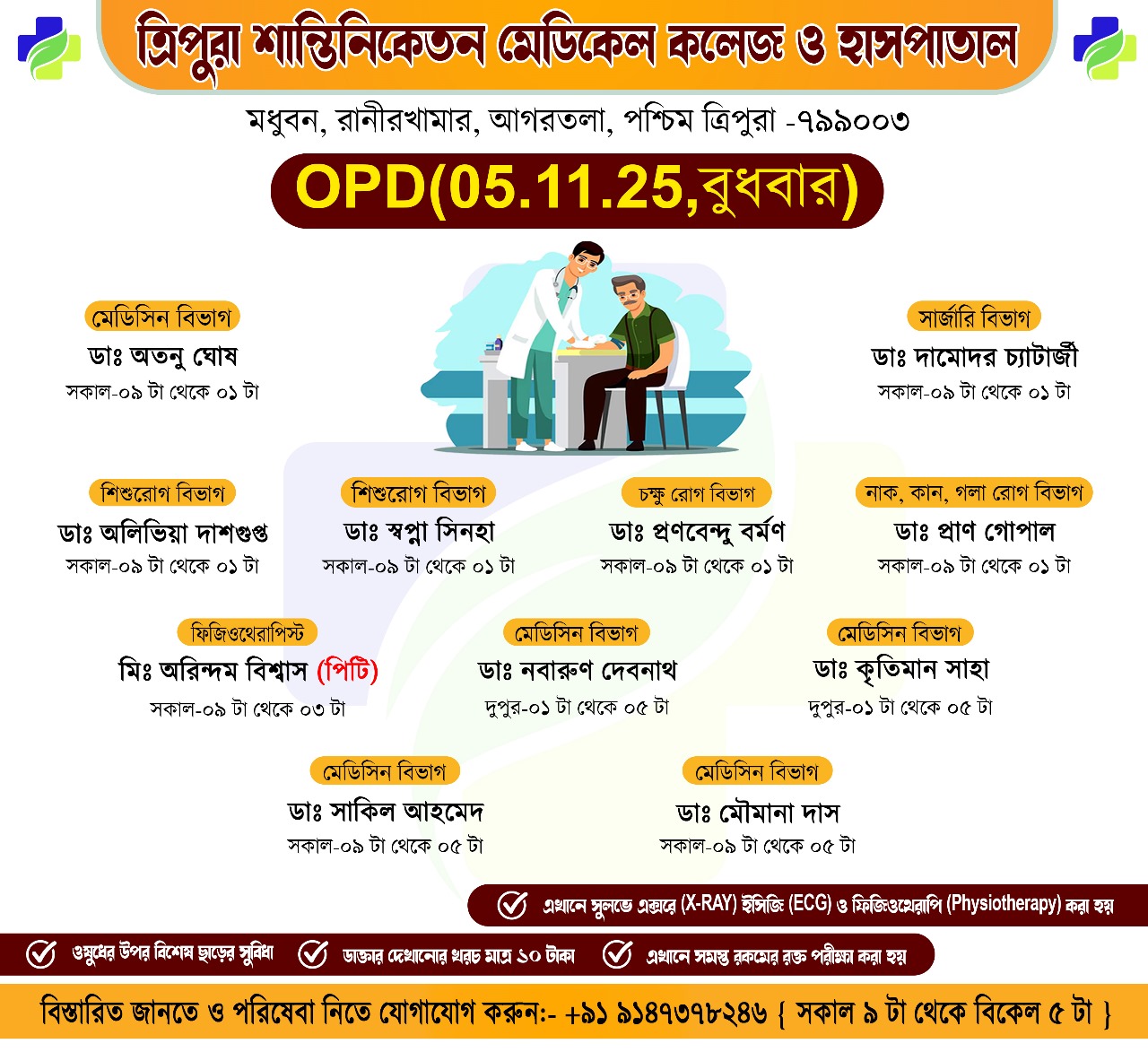Positive Barta: Weaving Hope Through Digital Empowerment in Tripura
- By Thetripurapost Desk, Agartala
- Nov 04, 2025
- 1700
In the quiet corners of Tripura’s countryside, where the rhythmic clatter of looms and the earthy scent of clay still define everyday life, a digital transformation is quietly taking root. It is not led by a corporation or a government program—but by a social collective with a deeply human vision of Positive Barta.
Next Sunday, November 9, 2025, marks the official launch of its pioneering project, “E-Haat” (E-Market), at Shanti Niketan Medical College in Tripura.

But for founder Malay Pit, this is not just the unveiling of a platform—it’s the beginning of a movement.
“E-Haat is not merely a marketplace,” says Pit while interaction with The Tripura post.
“It’s a bridge connecting creativity, culture, and technology to empower the people who form the soul of our society—the rural artisans” he said.
For decades, Tripura’s rural artisans—bamboo weavers, potters, handloom workers—have struggled to sustain their livelihoods. Their crafts, steeped in tradition, often failed to reach markets beyond local fairs.

Positive Barta’s E-Haat seeks to rewrite that story. Through a digital platform, it aims to connect rural creators directly with urban buyers, eliminating middlemen and giving artisans a global voice. But more than commerce, it’s about dignity—the kind that comes from being seen, valued, and celebrated.
By integrating digital marketing, social media promotion, and e-commerce tools, the initiative introduces rural workers to a modern marketplace—without erasing their heritage.
Tripura has long faced the challenge of digital divide, where rural communities remain isolated from technological benefits. E-Haat flips this equation—it brings technology to the grassroots, training villagers, homemakers, and young entrepreneurs to engage in online trade and storytelling.
In doing so, it creates what Pitt calls a “collaborative digital ecosystem”—where artisans, influencers, and tech experts work side by side. The model is simple yet revolutionary: culture as content, craft as commerce, and community as capital.
 Beyond economics, E-Haat carries a profound cultural mission. Each handwoven shawl, each carved bamboo piece, tells a story of heritage and belonging. By giving these crafts a digital platform, Positive Barta is preserving not only livelihoods but also identities.
Beyond economics, E-Haat carries a profound cultural mission. Each handwoven shawl, each carved bamboo piece, tells a story of heritage and belonging. By giving these crafts a digital platform, Positive Barta is preserving not only livelihoods but also identities.
Through digital storytelling, video promotion, and influencer collaborations, E-Haat turns local artistry into a global narrative—one that speaks of sustainability, creativity, and pride.
One of the project’s most transformative impacts lies in its inclusion of women and youth. Many rural women artisans, previously confined to domestic roles, are now being trained to sell their products online. Young creators, meanwhile, are finding space to collaborate, innovate, and mentor.
This blend of tradition and innovation is redefining social roles and fostering a sense of self-reliance. “We are not waiting for opportunities anymore,” says a young participant from West Tripura. “Through E-Haat, we’re creating our own.”
Economists may view E-Haat as a micro-level digital enterprise, but sociologists see something deeper—a new social economy where relationships, not just transactions, drive progress.
It’s a model of inclusive development that blends economic empowerment with cultural continuity—a rare harmony in a rapidly globalizing world.
As Tripura steps into this digital renaissance, Positive Barta’s E-Haat stands as a symbol of what grassroots innovation can achieve. It redefines success not as profit margins but as the growth of people, pride, and possibility.
In a world obsessed with algorithms and analytics, Positive Barta reminds us of something timeless: technology finds its true meaning when it amplifies humanity.